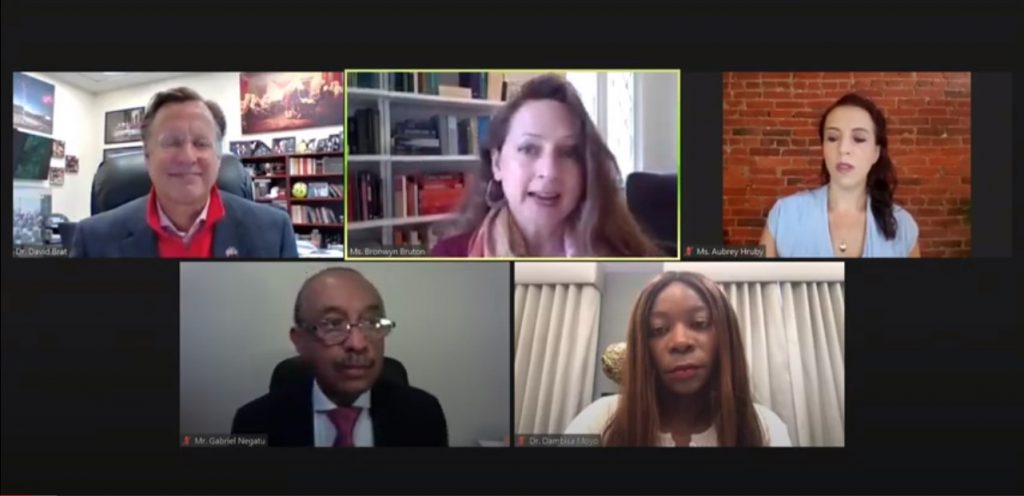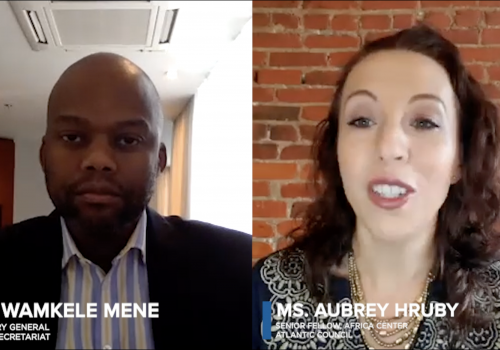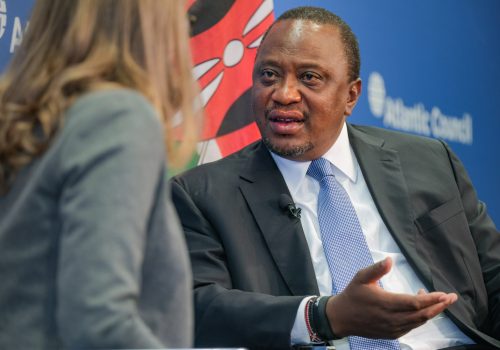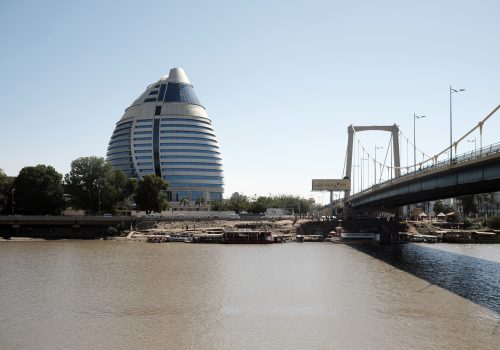On Friday, July 10, the Africa Center hosted a panel discussion on whether the time has come for a Marshall Plan for Africa. The panel featured Global Economist and Author Dr. Dambisa Moyo, former US Congressman Dr. David Brat, and Africa Center Senior Fellow Ms. Aubrey Hruby. The virtual conversation was moderated by Africa Center Senior Fellow Mr. Gabriel Negatu, with opening and concluding remarks given by the Center’s Director of Programs and Studies Ms. Bronwyn Bruton.
The panelists took on what Moyo described as an important and urgent issue in discussing the idea of a Marshall Plan for Africa. While Moyo, formerly a vocal aid skeptic, acknowledged that to some the concept of massive aid packages might seem fanciful as Western countries are currently struggling themselves, bringing this debate back to the table in a sensible way is important if countries are to plan to meet the challenges of the next decade. She noted that “we are in particular circumstances where the evidence has shown that there is an important imperative for large countries to think about putting together some kind of relief package for Africa.” In this vein, she outlined three specific imperatives for action. First, there is a health imperative, underscored by low health spending per capita across African countries. Second, there is a broad economic imperative, as the International Monetary Fund projects a significant contraction to growth, alongside existing issues of debt and deficits that put African markets at risk of a “depression-like scenario.” Finally, Western countries should view a Marshall Plan-type program as an opportunity to reassert relevance on the continent, which has been ceded to others like China.
Hruby added that “execution is everything,” remarking that the Marshall Plan succeeded due to its specific structure, which emphasized industrial productivity, economic integration, foreign exchange, and a mobilization of private sector expertise. Hruby and Brat went on to debate the desired sequencing of anti-corruption efforts, with Hruby arguing that investment can help facilitate better governance environments by creating a healthy tension between the business community and government. “We need more Dangotes in African markets,” she said, citing that only 400 African companies exceed $1 billion in revenue per year.
The panelists concluded with reasons for optimism in the face of frustration, as Moyo put it, that the narrative on Africa has not changed in decades, mired in the pessimism of corruption, conflict, and poverty. A self-ascribed “eternal optimist,” Moyo reflected on the positive potential of technology; Hruby highlighted digitalization and new tools like the US International Development Finance Corporation; and Brat emphasized the power of the business community.
Building off the broader discussion and particularly Brat’s point on the role of American business, Bruton concluded the event with a powerful statement on the unfortunate lack of conviction among American corporations that Africa is essential to their bottom lines. Changing this narrative promises to be a key point of interest for the Center and one that could significantly impact the future of African development.
Missed the event? Watch the webcast, below, and engage us @ACAfricaCenter with any questions, comments, or feedback.
For more Africa Center content, go to our Coronavirus: Africa page.



